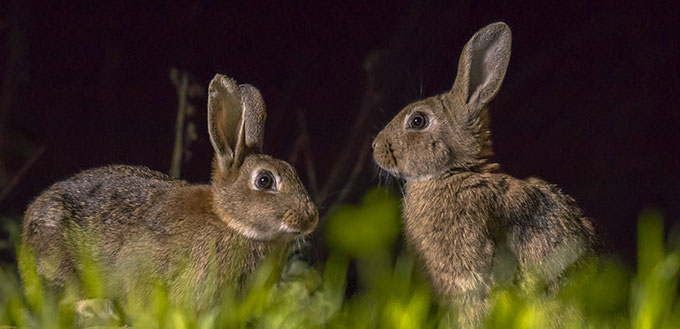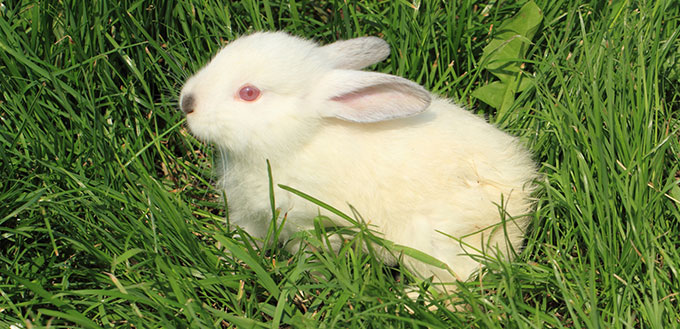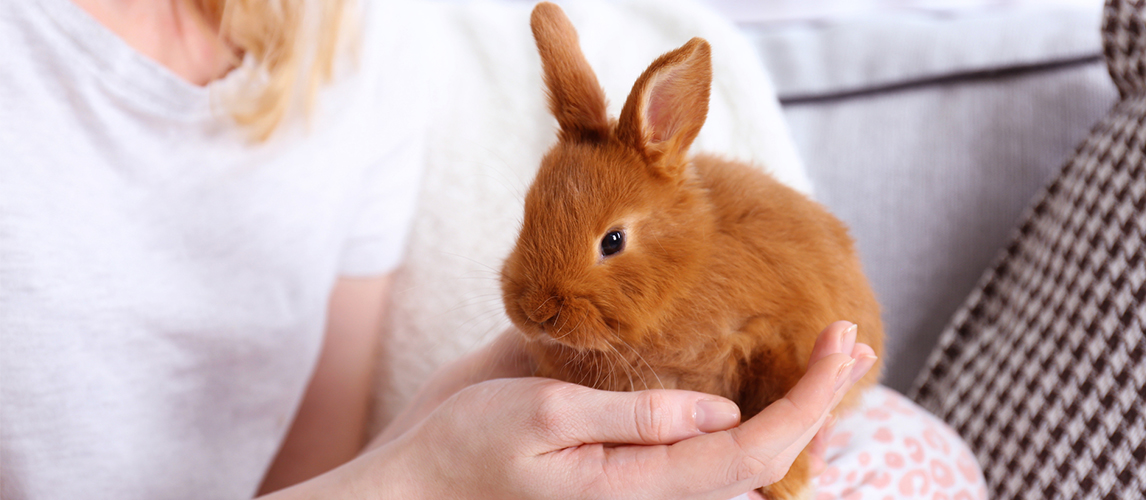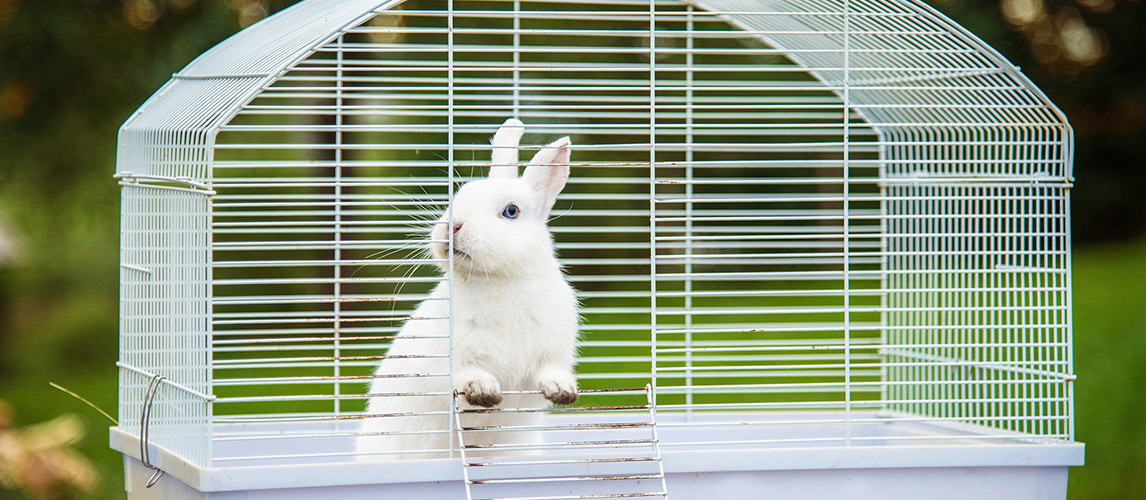You have probably heard that rabbits are nocturnal, or maybe you have heard that carrots can help you see in the dark. Either way, many people think that rabbits have some form of night vision that can help them see when it is dark. But is this true? Is there such a thing as rabbit night vision, or are they just as blind as we are after dark?
Rabbit Vision
Animals are fascinating. Getting to know how they think and why they behave in certain ways is a huge part of the fun of having a pet, and one of the most intriguing questions is ‘does my pet see the world in the same way that I do?’. The answer is almost always ‘no’. Most animals have differently shaped eyes that allow them to be better at some things and worse at others. Some important facts about your rabbit’s vision include:
- The position of their eyes allows them to see almost 360 degrees, although they have a blindspot, while we see only 180 degrees.
- They are far-sighted so can see objects that are far away better than objects that are near to them.
- They can see color, but primarily see in greens and blues. This is because most of their food is green, so it is more helpful for them to differentiate types of vegetation by subtle shade differences, than for them to see hues of pink and orange.

Related Post: Do Rabbits Make Noise
What Do Rabbits See at Night
Your rabbit can, indeed, see better than you can in the dark. But, this is not due to the carrots in their diet. In fact, carrots are not that healthy for rabbits and the myth that carrots help you see in the dark is a rumor that was started during the Second World War to disguise the invention of the radar.
It is not, however, exactly accurate to say that your rabbit has any form of excellent night vision. While they may have better vision than we do, that is not exactly difficult because we see absolutely nothing due to being diurnal animals who stay awake during the day. The truth is, a rabbit’s vision during the day and at night is likely to be roughly of similar quality, and the structure of their eye only makes the world appear ‘grainy’ or even ‘blurry’ at night. However, they can also use their other senses to gather more information about their surroundings.
There is a scientific explanation for these differences in their vision. Like all animals, the quality of rabbit’s vision is determined by their rods and cones. Cones determine quality and color, which our eyes excel at, while rods determine light sensitivity. Rabbits have more rods, which makes their eyes better than ours at night, allowing them to pick out blurry shapes and movement, but worse during the day as they have to deal with a lot of glare.
When is a Rabbit’s Vision at its Best
It is a common misconception that rabbits are nocturnal, which is an animal that is primarily awake during the night. This is another reason many people believe that rabbits have a form of night vision. However, rabbits are neither diurnal or nocturnal. They are crepuscular.
Crepuscular animals are at their best during sunset or sunrise when there is a low light. This means a rabbit’s vision is at its absolute best during the twilight hours, when it is not too bright and not too dark for their rods. If you want to go rabbit watching, it is best to go out at dawn or dusk because this is when they are most likely to come out of their burrows to take advantage of their great eyesight.
Do Rabbits Prefer The Dark
Although we’ve established that your rabbit can see similarly well in pitch black darkness and at noon on the sunniest day, it is important that we also consider which makes them happiest. This is a more complex question than you may think because it can depend on the circumstances.
Wild bunnies do prefer dark spaces because they spend a lot of their time living in burrows, which is where they are safest. The dark provides cover that is essential for their survival, so they are likely to associate it with calmness and less anxiety. Your pet rabbit, however, will not have this experience. They are likely to associate daylight with spending time with you and being happy and safe with you. Each individual rabbit may also have their own preferences.

Does My Rabbit Need A Night Light
If your pet rabbit does prefer the light, does that mean they will be happier if you leave a light on for them at night? The answer depends on your rabbit. As we mentioned, it is your presence that is ultimately making them happy, so the light may not be that comforting if they can see similarly well either way.
As prey animals in the wild, rabbits only sleep for about 4 hours in any 24 hour period, and they might sleep safely in their burrows during either the day or the night. Your pet rabbit will have their own preference for when they get their 4 hours, and you should factor that in to your decision to leave on a night light. If your rabbit enjoys using the darkness to sleep, it could be disruptive to leave on a light.
It may be worthwhile to experiment, however. You could ensure that a light is angled to ensure they always have a dark, safe, corner to retreat to if they want to sleep, for example. The most important thing is that you do not turn on a very bright light, as they will not get much benefit from living in a permanent midday sun. The worst thing you can do is trap your rabbit in a bright world that is difficult to sleep in.
If you use a light, try to recreate the conditions of twilight as best as you can using low lighting. Low-lighting is most likely to create an additional benefit to your rabbit’s life. While it is inaccurate to suggest that rabbits are inherently afraid of the dark, their reduced vision relative to low lighting conditions, will make them more skittish and sensitive to noise and movement. A low night-light could help relieve them of this heightened sense of alert.
Related Post: Do Rabbits Hibernate?







